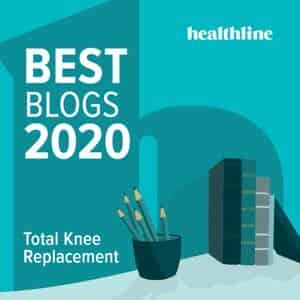I had total knee replacement of my right knee on 3/6/24, and from all indications. I am doing great. However, I felt weepy for a couple of weeks prior to the surgery, then great relief after it was over, back to “needy and weepy” sometimes now. I see from the posts I’ve read that this is normal and makes me feel better.
‘’I live alone with my dog but I have a great support group of family and friends that visit, bring food, take me to PT, etc. and I don’t know what I’d do without them.
I did not realize before surgery how long the recovery process could be, and I’m feeling a little daunted by that. I’m a ”get her done” kind of person so it’s going to be hard to pace myself.
One thing that bothers me is the anxiety about possible infections, not doing the exercises correctly or enough, making sure I do everything right and don’t miss a step. This is my typical response to situations where I don’t have complete control, but it complicates things.
One specific question I have is how long do most people wear the surgical hose. My dr’s nurse said I can remove them at night after 1 week, but wear them in the day time for 2 weeks. The notes on my chart said to wear them until I go to my post-op which is Tuesday. The therapist said she sees no reason to wear them at all now that I’m up and moving around frequently. It’s difficult because they actually wrapped my legs from my ankle to right above my knee because the thigh high socks were rolling down.
so they’re hard to keep on at the right tension, and then I have to rewrap them myself when I take them off, etc. so…I’d really like to be done with them.
‘’I live alone with my dog but I have a great support group of family and friends that visit, bring food, take me to PT, etc. and I don’t know what I’d do without them.
I did not realize before surgery how long the recovery process could be, and I’m feeling a little daunted by that. I’m a ”get her done” kind of person so it’s going to be hard to pace myself.
One thing that bothers me is the anxiety about possible infections, not doing the exercises correctly or enough, making sure I do everything right and don’t miss a step. This is my typical response to situations where I don’t have complete control, but it complicates things.
One specific question I have is how long do most people wear the surgical hose. My dr’s nurse said I can remove them at night after 1 week, but wear them in the day time for 2 weeks. The notes on my chart said to wear them until I go to my post-op which is Tuesday. The therapist said she sees no reason to wear them at all now that I’m up and moving around frequently. It’s difficult because they actually wrapped my legs from my ankle to right above my knee because the thigh high socks were rolling down.
so they’re hard to keep on at the right tension, and then I have to rewrap them myself when I take them off, etc. so…I’d really like to be done with them.



 United States
United States I will leave our Recovery Guidelines and type more in a post below -
I will leave our Recovery Guidelines and type more in a post below -
